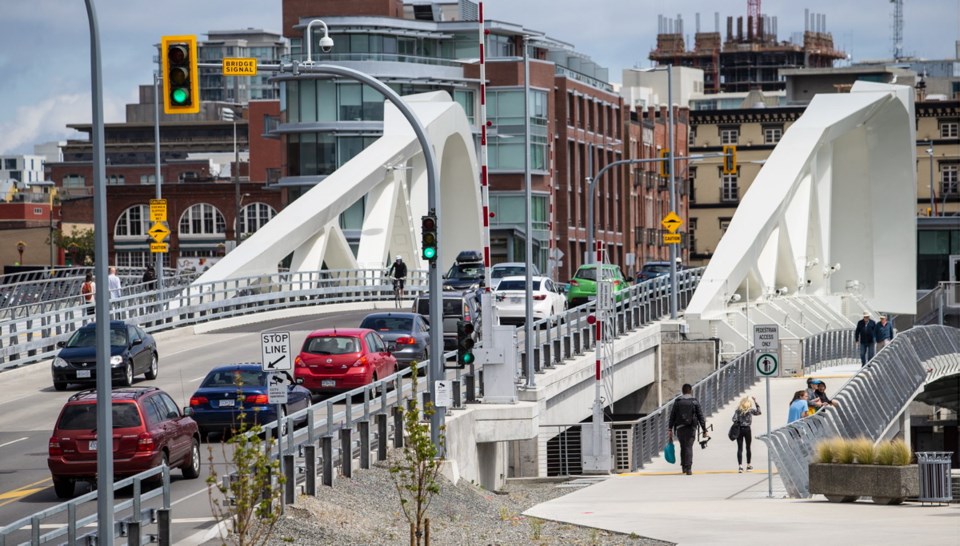A group of environmental activists is planning to try to shut down some of Canada’s busiest bridges on Monday by having protesters lie down or sit in traffic lanes.
The Extinction Rebellion group’s targets include the Johnson Street Bridge in Victoria, Angus L. Macdonald Bridge over Halifax Harbour, the Burrard Street Bridge in Vancouver and the Prince Edward Viaduct in Toronto.
In a Facebook post, the Victoria-based #BridgeOut Campaign said: “the bridge to the future is being demolished by big oil, and oily politicians."
The group said emergency vehicles, cyclists and pedestrians will be allowed through and expects to start the sit-in shortly after 3:30 p.m. and remain until 7:30 p.m. “This escalation of tactics is the minimum of what’s necessary to give young people a fighting chance at a decent future,” said the Victoria group’s Facebook post. “We regret that ordinary people will be frustrated by the commute disruption, but the collapse of human society would be a much bigger inconvenience.”
A similar protest in December caused major traffic delays. The Point Ellice Bridge on Bay Street is undergoing work and is closed to eastbound traffic travelling from Vic West toward downtown Victoria.
Patrick Yancey, a Nova Scotia organizer for the event, said the planned acts of civil disobedience are aimed at showing the public that major disruptions are inevitable if society fails to act on climate change. “The intent for our key decision makers is to wake up and take some action on the climate crisis,” Yancey said.
In similar protests in the United Kingdom this summer, the group created traffic disruptions in several major cities that lasted for hours or even days.
Halifax Harbour Bridges, which oversees both the Macdonald and MacKay bridges, said in an email that management wants to respect the right to peaceful protest while upholding the Crown corporation’s mandate to ensure “safe cross-harbour passage.”
Asked about whether he’s concerned about public backlash against the civil disobedience, Yancey said milder tactics have not moved governments to consider rapid change.
“We’ve tried everything else, but a major economic disruption is the only thing that’s going to get our decision-makers to take action in the climate crisis,” he said.
The United Nations Intergovernmental Panel on Climate Change has said there will be irreversible changes to the global environment if society doesn’t take rapid, intense action to cut greenhouse gas emissions.
Robert Huish, a professor at Dalhousie University’s department of international development studies, said there is a risk for Extinction Rebellion groups that the public will react negatively the group’s tactics.
He said he expects a different public reaction from the so-called Climate Strike protests that occurred last Friday, when children participated and some business gave employees the day off to march. “What can occur is the reaction that comes from [the bridge occupation] is not what the group intended,” said Huish.
Huish said acts of civil disobedience such as the road occupations and arrests in the U.K. can be remembered as landmark events, while the irritation of individual commuters is forgotten.



